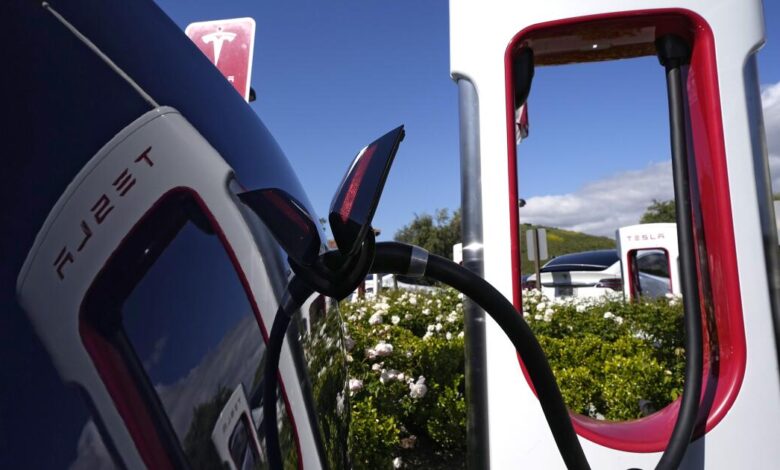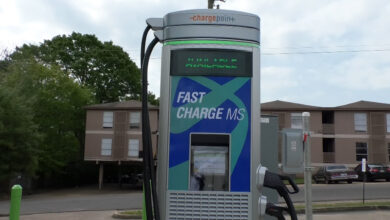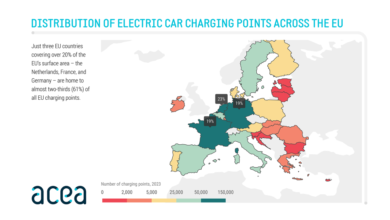Sticker price doesn’t tell you everything about the cost of an EV

To the editor: Your editorial on the Biden administration’s tariffs on Chinese-made electric vehicles confuses the sticker price of an EV with the real cost of driving one and misrepresents the real reason for slowing EV sales.
The best-selling gas-powered sedan is the Toyota Corolla, which you can drive with a lease payment of typically $299 per month, plus the cost of gas and repairs.
The best-selling EV is the Tesla Model Y, which you can drive with a lease payment of $399 per month, minus the savings in gas and repairs. Those savings put the real monthly cost well below $299.
It is this kind of confusion that discourages potential EV buyers.
The other reason is the lack of decent charging infrastructure for any car other than a Tesla. Only Tesla had the foresight to build out a nationwide network of Superchargers that is reliable, is easy to use and eliminates any hint of range anxiety.
A $12,000 Chinese-built EV without the charging infrastructure to accommodate it will not speed up the transition to zero-emission cars.
Michael Mekeel, Los Angeles
..
To the editor: We won’t need any help from China tariffs to kill the electric car if the media, including The Times, continue their relentless and misleading characterization of EV prices as sky high and out of reach for many.
Remember, the vast majority of Americans buy used cars, and I just did a quick search. I found used EVs by Chevrolet, Ford, Volkswagen, BMW and Nissan for less than $20,000, and that’s before a federal tax credit of up to $4,000, for which all the vehicles were eligible.
Some utilities offer even larger rebates for replacing high-polluting vehicles. Add to that charging station incentives and the reduced cost of operating an EV (hello, gas prices), and you have a pretty picture.
More than that, it’s a much more realistic one. Please stop perpetuating your misleading scenario.
Zan Dubin, Santa Monica
The writer is co-founder of National Drive Electric Week.
..
To the editor: We don’t need to choose between accelerating the use of EVs while decimating U.S. autoworkers jobs, and accelerating global warming because EV adoption slows to a crawl. Instead, make sure Chinese autoworkers are fairly paid.
Recent changes to the North American Free Trade Agreement have made it easier for Mexican workers to form real, independent unions.
Furthermore, the United Auto Workers union has not only shown that the lives of workers in the American South can be brought up to a decent standard, but it has also pledged to stand behind Mexican autoworkers as they try to raise their own standard of living.
As both U.S. and Mexican employees fight their way back into the middle class, they improve their respective economies and become consumers instead of merely wage slaves.
China must have access to North American and European markets. We should open ours only to the extent that China allows strong and independent unions to flourish and cooperate with their counterparts around the world.
Douglas Marshall, Bell



